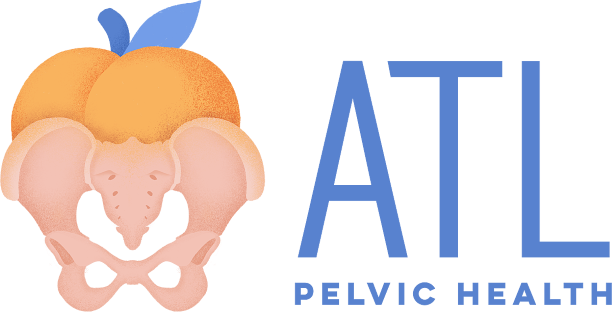Grateful for a Healthy Bladder: How Gratitude and Awareness Support Pelvic Health
November is a season for gratitude — for the people, moments, and comforts that bring meaning to our lives. But at ATL Pelvic Health, we also believe gratitude can extend to something often overlooked: our bladder health.
A healthy bladder allows us to move through life freely — enjoying laughter, exercise, and long road trips without worry. When bladder symptoms appear, they can quickly impact confidence and quality of life. The good news? These issues are common, treatable, and absolutely worth addressing.
Common Bladder Health Challenges
Bladder concerns are incredibly common, especially after pregnancy, during menopause, or as part of normal aging. Yet, many people hesitate to talk about them — assuming it’s “just something that happens.”
Common bladder health issues include:
Urinary leakage (incontinence): Leaking with coughing, laughing, sneezing, or exercise.
Urinary urgency: Feeling like you have to rush to the bathroom.
Frequency: Going more than 8 times a day or waking up often at night to urinate.
Incomplete emptying: The sensation that your bladder never fully empties.
These symptoms are signals from your body — not something to ignore or be embarrassed about. The key is understanding what’s causing them and learning how to support your bladder through healthy habits and pelvic floor awareness.
The Role of the Pelvic Floor in Bladder Health
Your pelvic floor muscles play a major role in controlling your bladder. These muscles act like a hammock, supporting your bladder and urethra while maintaining proper pressure and coordination during urination.
When these muscles become weakened, tight, or uncoordinated, they can contribute to leakage, urgency, or discomfort.
Pelvic floor physical therapy helps retrain these muscles to work efficiently again — restoring control, improving bladder habits, and giving you back confidence in daily life.
At ATL Pelvic Health, we focus on both strength and relaxation, helping you find the right balance for optimal bladder function.
Tips for Improving Bladder Health
Small, consistent changes can make a big difference in your bladder health. Here are a few ways to start:
Stay hydrated — Aim for half your body weight in ounces of water per day. Dehydration can actually worsen urgency and leakage.
Limit bladder irritants — Caffeine, carbonated drinks, and artificial sweeteners can increase urgency and frequency. Try reducing these if you notice symptoms.
Don’t go “just in case” — Train your bladder to hold urine until you actually feel the urge, rather than emptying it preventively.
Practice pelvic floor awareness — Learn how to contract and relax your pelvic floor muscles correctly. A therapist can guide you through exercises tailored to your needs.
Prioritize consistent bowel habits — Constipation can place extra pressure on your bladder and pelvic floor, so regular movement and fiber intake matter.
This month, as we focus on gratitude, take a moment to appreciate your body — and all it does for you daily. If your bladder has been sending you signals that something feels off, it’s never too late to listen and take action.
At ATL Pelvic Health, we’re here to help you reconnect with your body and find lasting solutions that restore comfort and control.
Take the first step toward better bladder health — Book your evaluation today and start your journey to feeling confident and free.
